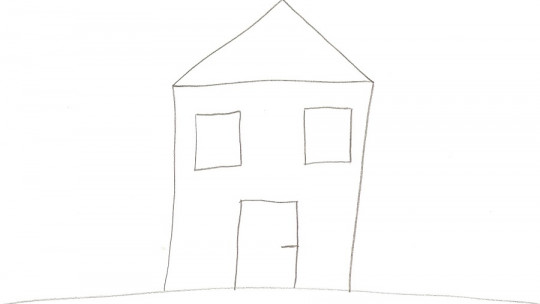
It is completely natural that at some moments in our lives we do not feel like leaving the house, and we prefer to stay doing some activity that we like in our privacy.
“I don’t feel like leaving the house” can become a frequent response to any invitation they make to us. There is nothing out of the ordinary with this, as long as it does not become intense and recurring behavior. If not, we could even stop fulfilling our obligations by remaining in our home irrationally, as if it were voluntary exile.
In this article we are going to see how this situation could occur and some ways to prevent and overcome it in case we already find ourselves exhibiting this behavior of voluntary social isolation.
Why don’t I feel like leaving the house?
Not wanting to leave the house It can respond to various factors, all of them of a very personal nature. Each person could have reasons for it depending on their perception of their current situation, and these reasons can be real or fictitious.
For example, if we feel that at school or college we are the subject of constant ridicule and that everyone is constantly gossiping about us, this perception of things could be a reason for not wanting to go to the place of study, or for not wanting to leave the house, in general.
In fact, one of the main causes of social isolation behavior in people is the perception that they themselves have about their daily life.
At first it may not seem like something too important to stop leaving the house to avoid annoying situations, but if we do not have the ability to face these situations in our lives, avoidance and social withdrawal behavior could intensify.
There is even a risk that it could become a significant problem in the person’s life, affecting various areas of their daily life, such as personal, work, academic, and social aspects.
What are the most common causes?
In the next lines we are going to see some of the most common reasons why a person might not feel like leaving the house.
1. Depressive states
Depressive states in a person, motivated by some negative experience that has been had, real or imagined can cause you to avoid leaving the house for fear of finding yourself in uncomfortable situations again.
In major depression, in fact, the problem is more profound: the person does not feel like doing anything.
2. Anxious states
Anxiety usually accompanies the depressive state, but it could also occur alone, when the person has the idea that the things they should do outside the home will go wrong.
It is an accelerated and catastrophic thinking pattern where the subject assumes that something unpleasant will happen to him if he leaves his home, and therefore avoids doing so.
3. Grief processes
The loss of a loved one, or of some object significant to us, can be a trigger for isolation behavior at home, all motivated by sadness.
The subject who is going through a grieving process isolates himself from reality, because it seems adverse to him and he would like to be able to change it in some way. Since she is unable to do so, she decides to stay away, usually staying home for extended periods of time.
4. Radical thinking
People with radical thinking have little tolerance for the frustration of things not being as they see fit; and if something goes the opposite way to what they would like, they tend to behave disproportionately, including spending entire days at home.
5. Unhealthy and strenuous lifestyle
Working hours that are too hard or maintaining a lifestyle in which there are few hours of sleep and a poor diet also cause people to believe “I don’t feel like leaving the house” when what really happens is that they don’t feel like it. because they can’t spend more energy moving.
What to do to overcome it?
Isolating behavior at home can be largely prevented if we are able to see things as they are really happening and not irrationally. Let’s see how we can achieve it.
1. Check how long you have been exhibiting the behavior
Realizing how long we have not wanted to leave the house makes us aware of what is wrong. Starting from there we can start working on solving the problem preventing it from lasting longer.
2. Identify what may have motivated the behavior
If we can determine what could have happened to us that made us not want to leave our house, it will be much easier to start working on solving the conflict.
Once you have specified it, you must evaluate the cause objectively without letting your emotions generate biases.
Reality is as it is, not as you would like it to be. If you really have a grueling lifestyle, for example, wishing you had the strength to do everything won’t change the fact that you need to rest.
3. Think about how not leaving home affects you
This exercise is useful to understand that isolation behavior does not benefit us at all ; On the contrary, it prevents us from facing the real situation and keeps us exactly in the place where we do not want to be. We must internalize this reality and look for the best ways to deal with the problem.
4. Set schedules
Schedules are a very important support for establishing habits that lead us to improve ourselves, and in this sense they help a lot to adopt a more active and less sedentary lifestyle. Print it and keep it in sight, having filled it with stimulating activities that lead you to socialize outside the home and move in open spaces to stay in shape, will act as an incentive and a constant reminder of what you should do throughout the day.
5. Establish aerobic exercise routines outdoors
Activities such as going for a run or cycling are stimulating from the first session, given that they are not very complex and provide clear and simple objectives. In addition, this type of activity is beneficial for anxiety and mood disorders.
6. If all else fails, attend psychological therapy
Therapy is of great help for people looking to leave confinement at home. The psychotherapist will be able to help you Evaluate the situations that led you to that point and together it will be easier to find adaptive ways of coping to overcome the conflict.








